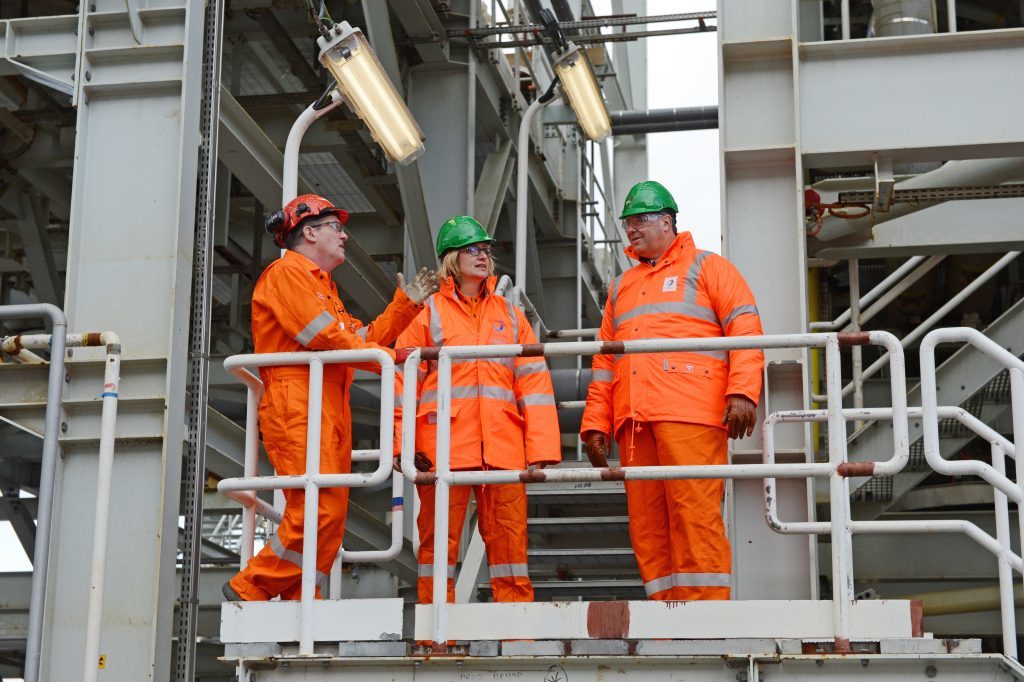
Fears were raised last night that the North Sea had fallen down the UK Government’s pecking order as Theresa May continued her Cabinet reshuffle.
The new PM yesterday scrapped the Department for Energy and Climate Change (Decc), led since the general election by Amber Rudd.
She has been promoted to home secretary, while Energy Minister Andrea Leadsom – previously responsible for oil and gas – now holds the environment brief.
Going forward, the energy portfolio will be covered by a new department headed by former communities secretary Greg Clark.
It has been named the Department for Business, Energy and Industrial Strategy, with responsibility for climate change policy also falling within its remit.
Deirdre Michie, chief executive of Oil & Gas UK, said she would be looking to meet with Mr Clark as soon as possible to discuss the challenges facing the sector, including low levels of exploration.
She also insisted oil and gas must remain a “linchpin” of the UK’s industrial strategy.
North-east Labour MSP Lewis Macdonald warned any “downgrading” of the status of energy was a “source of concern”.
He added: “Much will depend on whether there is an oil and gas minister of state. That’s clearly what we would be looking for.”
The SNP’s Callum McCaig also insisted it was vital there was a dedicated minister, adding: “This is too important to be lost in Whitehall reshuffling.”
Last night, Mrs Leadsom’s post remained vacant, but the prime minister’s spokeswoman said: “There are further ministerial appointments to be made.
“Then there will be announcements to be made about the allocation of portfolios.”
She also stressed energy would remain at the “heart” of the new administration.
Aberdeen South MP Mr McCaig, who is his party’s energy and climate change spokesman, branded the changes “another go on the merry-go-round” of people responsible for energy policy.
He continued: “A year after the election and already the two people who have been working on this, who have been slowly getting to grips with it, are now out the door.”
Former Scottish secretary Alistair Carmichael agreed the energy industry “desperately needs some continuity”.
But he argued being part of a bigger department could end up being good for energy policy, provided it was managed well.
Niall Stuart, chief executive of Scottish Renewables, said it “made sense” for energy and industrial policy to be in one place given the potential economic benefits from renewables growth.
There was further apprehension climate change policy would no longer be given adequate attention.
But the PM’s spokeswoman said Mrs May had been clear she would stand by her party’s manifesto commitments.
Mr Carmichael stressed the “renewables revolution” started in the Northern Isles had to be allowed to “take root and to develop”.
And Mr Macdonald accused the Tories of reverting “to type”, adding: “We have to wonder if this means climate change will no longer be given the attention and support it requires at the highest level.”
Liberal Democrat energy and climate change spokeswoman Lynne Featherstone called Decc’s abolition “another nail in the coffin of the green agenda”.
She added: “It is further evidence that the Conservatives have no intention of sticking by their legally binding renewables targets. Climate change sceptics in the Tory party must be having a field day.”
Her party ran the department in the Coalition, but during Ms Rudd’s tenure she faced accusations of being anti-green amid cuts to renewables subsidies and the axing of £1billion funding for carbon capture and storage (CCS) development.
Commons energy and climate change committee chairman Angus MacNeil said he was “astonished” at Mrs May’s decision to bin Decc in the context of last year’s Paris climate change agreement, adding the move raised “urgent questions”.
However, industry veteran Malcolm Webb called the move, saying the “hapless” department should be put out of is misery. Read more here.
Recommended for you
